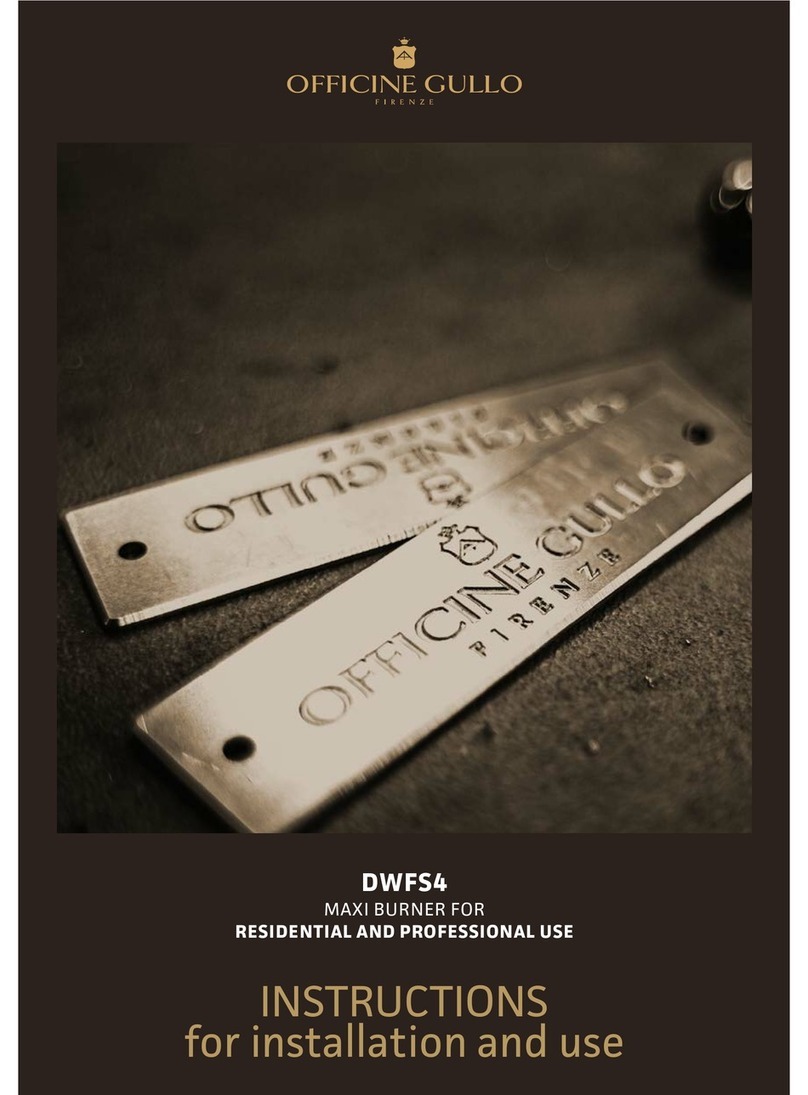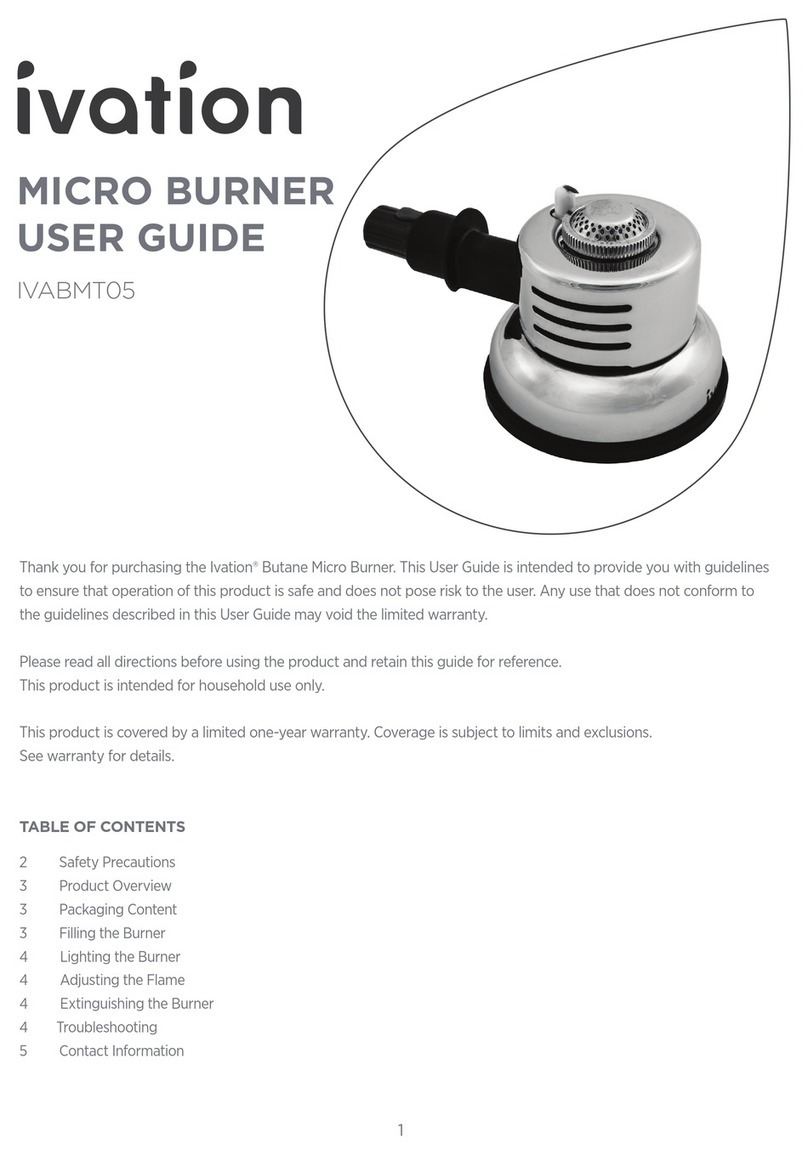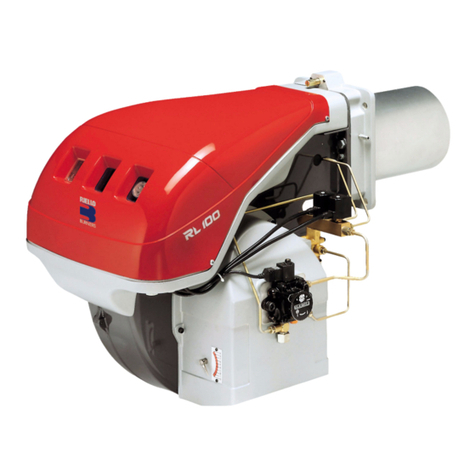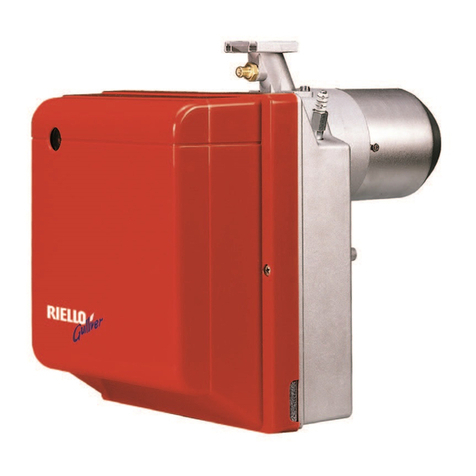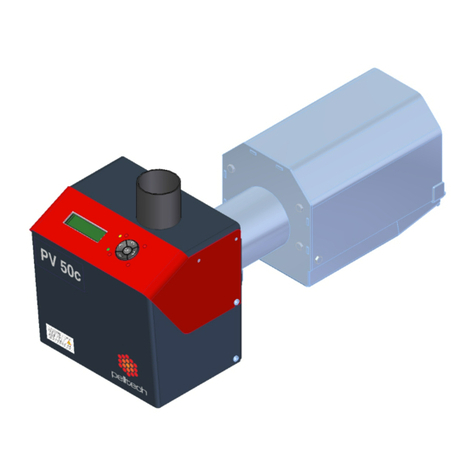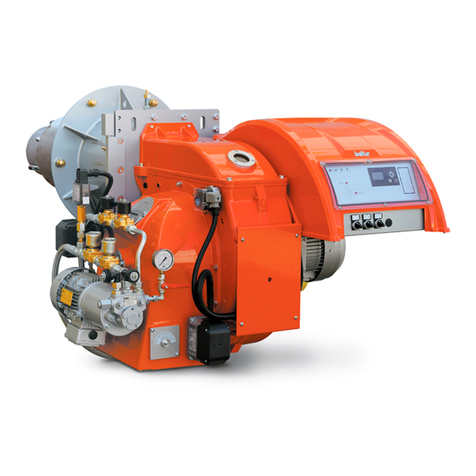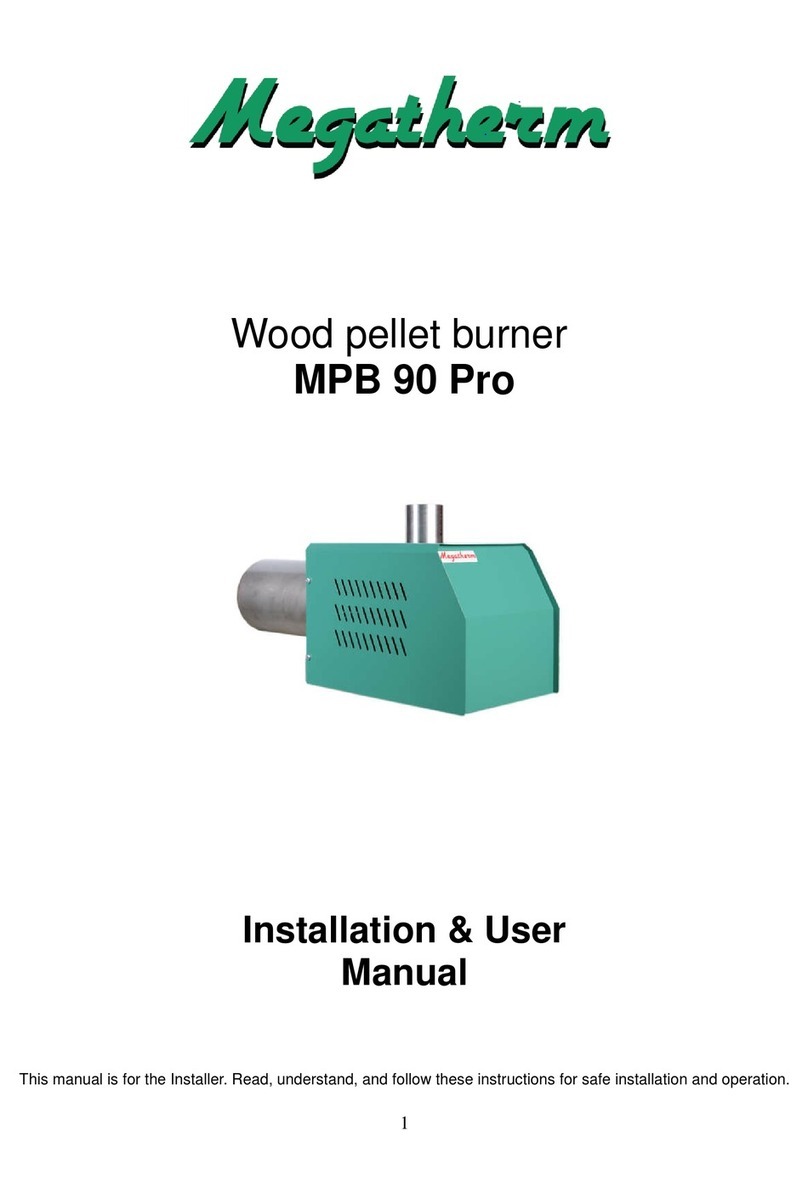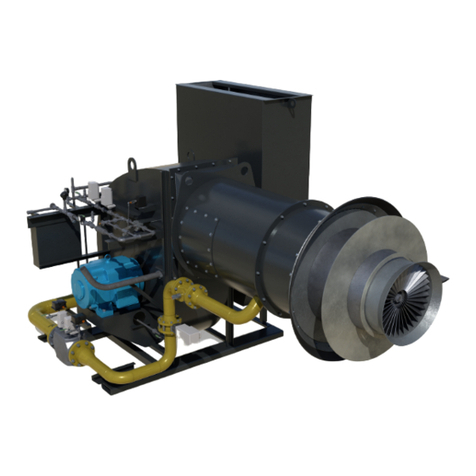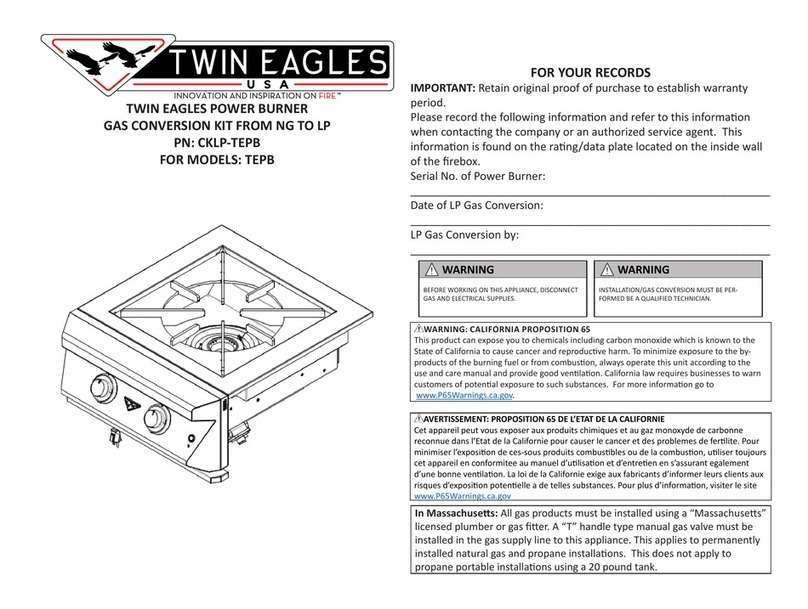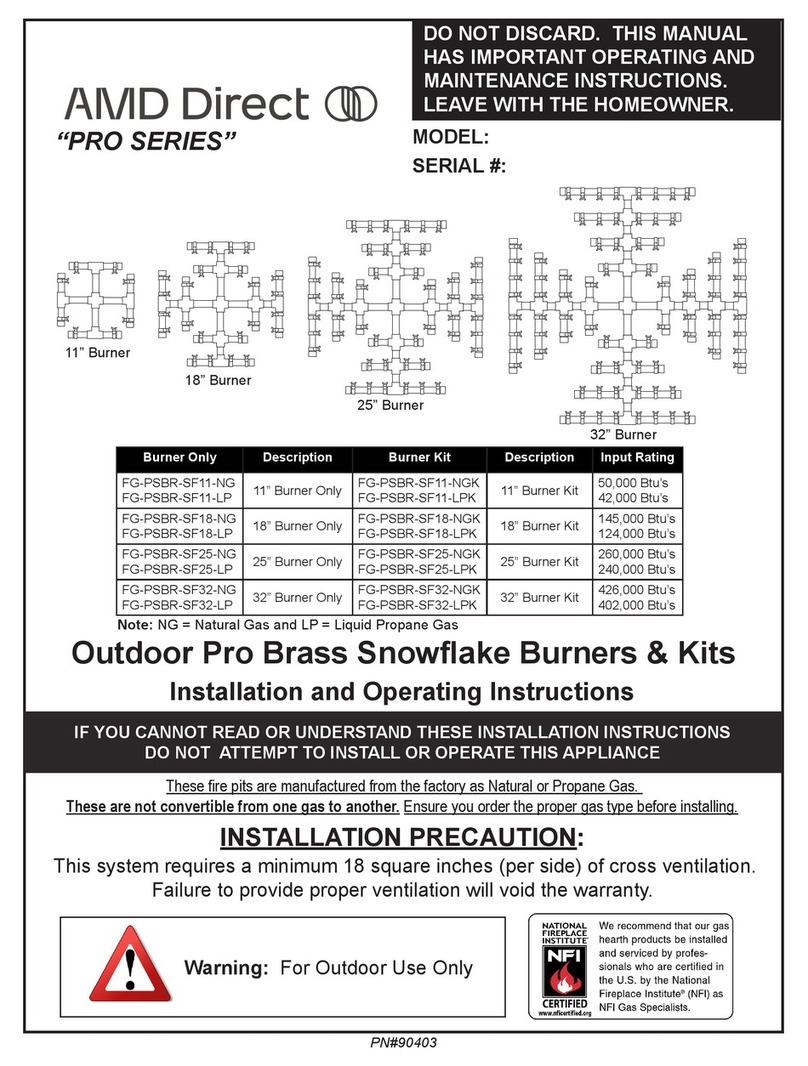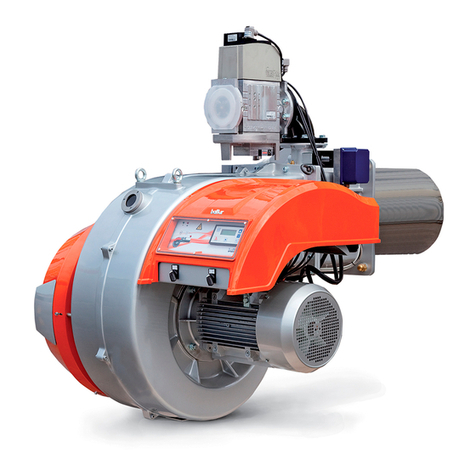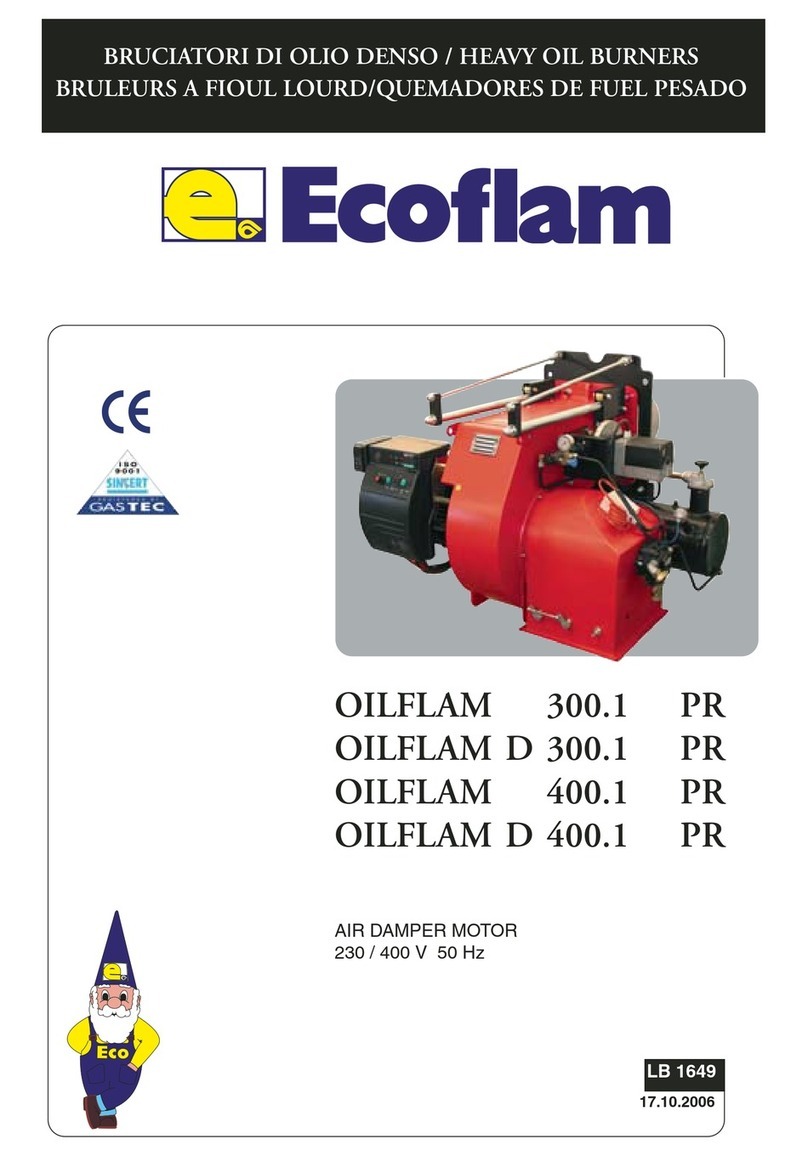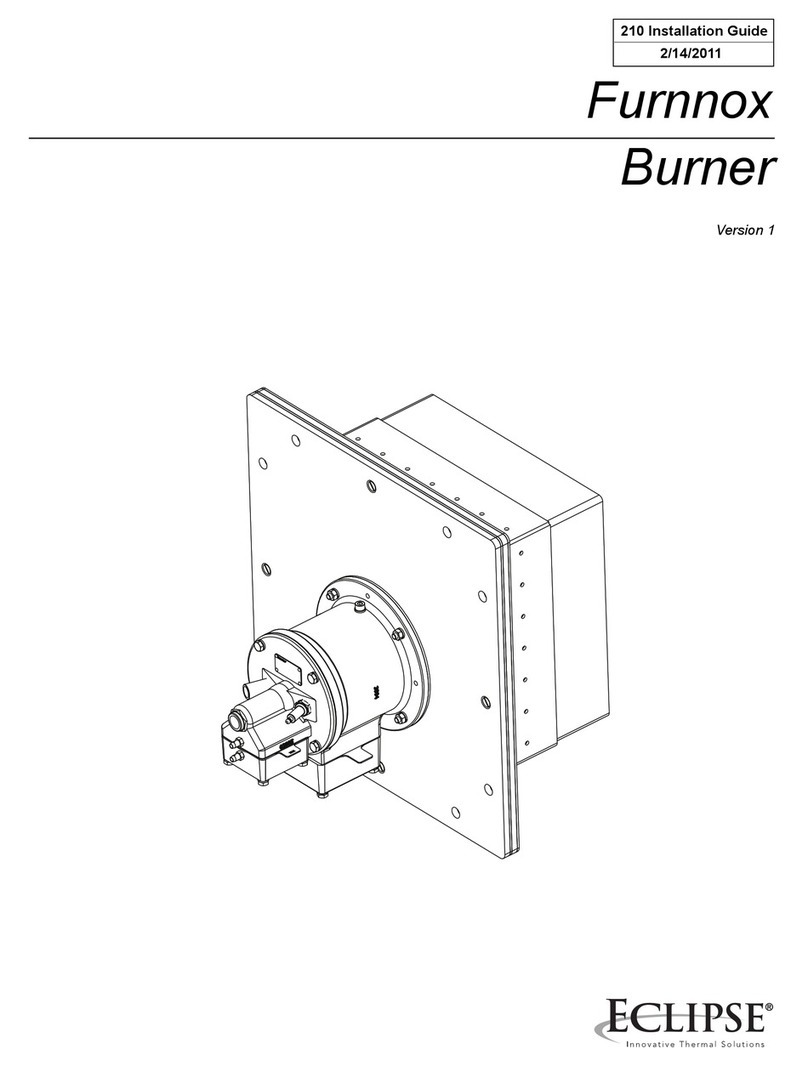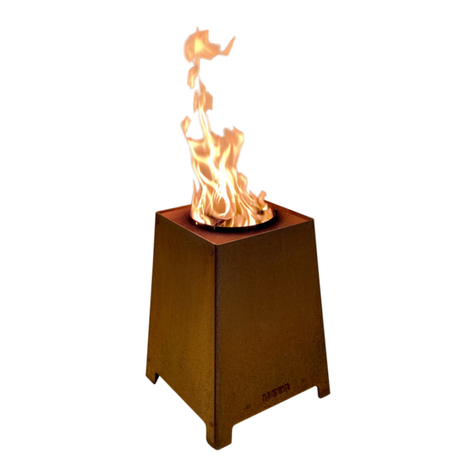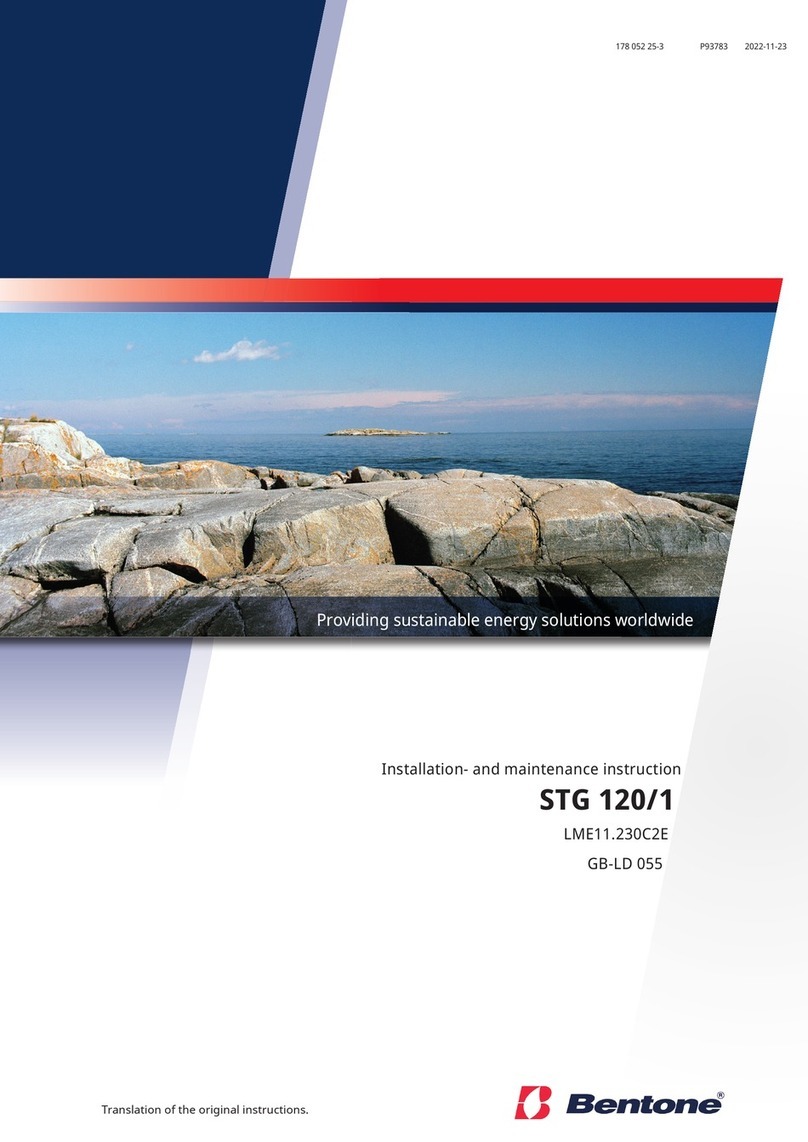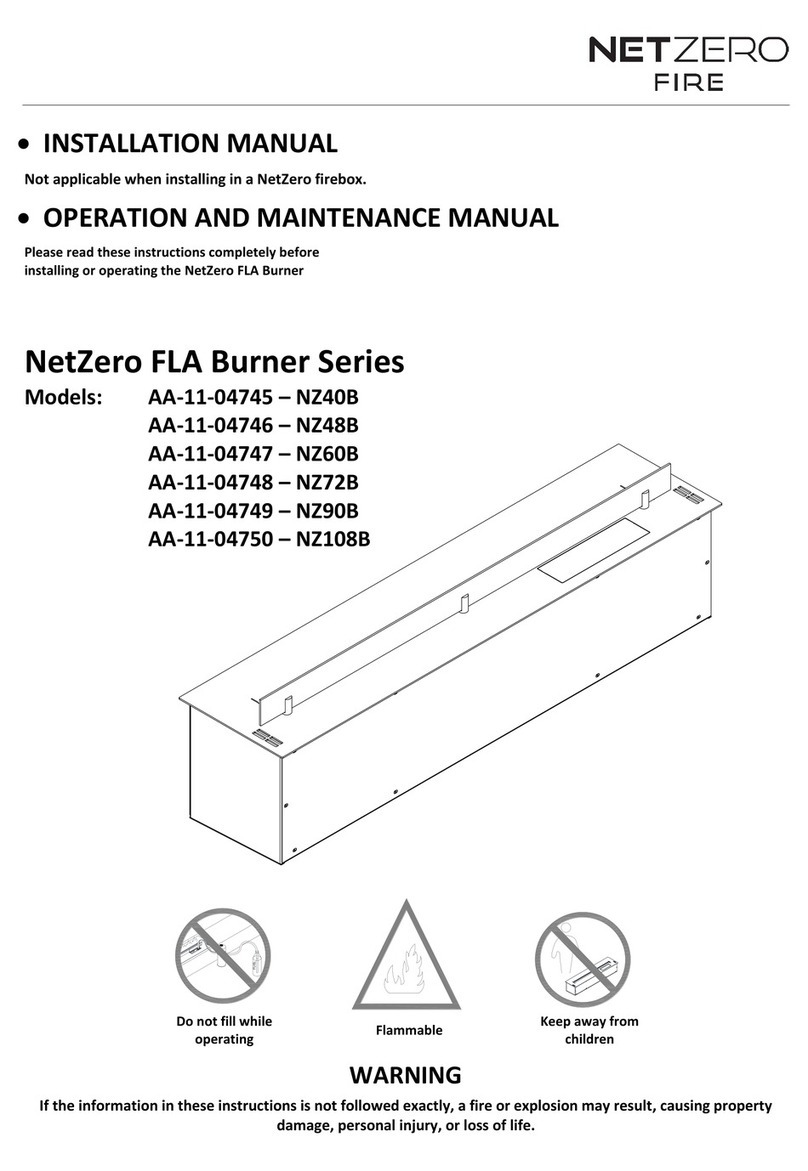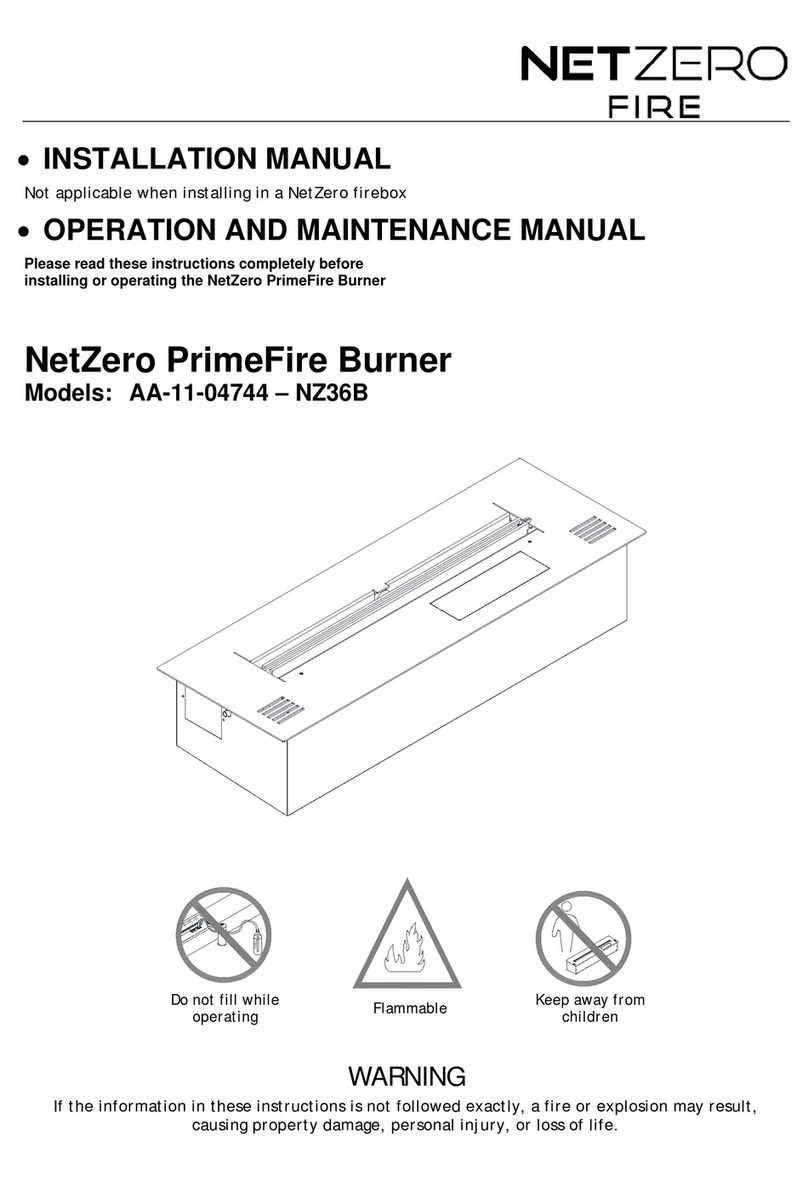
4
1.3 Locating the Burner
- Do not move or relocate the appliance while in use.
- For indoor use and in housing only. Minimum temperature of use is 50°F (10°C).
- No heat-sensitive or flammable objects can be placed within a 40 inch radius from, or directly above, the
burner.
- Do not place any objects on the top of the burner except attached accessories.
- For service purposes, the surrounding area must allow for easy removal of the burner.
- Keep children, animals, and unauthorized persons at a safe distance at all times and never leave them
unsupervised when the appliance is on or hot.
- A Class B fire extinguisher must be located in close proximity to the appliance in case of fire.
1.4 Ventilation & Required Room Size
Open fires consume oxygen. Use only in well-ventilated areas and those that are protected from the draft
effects of cross ventilation. When selecting a location for the appliance it is important to consider the
recommended minimum room sizes and clearances to walls and combustible materials (see Table A). An
air exchange rate of 1/hour is recommended.
In a house of typical construction, that is, one that is not of unusually tight construction due to heavy
insulation and tight seals against air infiltration, an adequate supply of air for combustion and ventilation
is provided through infiltration. The unvented decorative appliance should be installed in a room where at
least 200 ft.3(5.7 m3) of air space is provided for each 1,000 BTU per hour of unvented decorative
appliance rating (at maximum burner adjustment). See Table A for recommended minimum room size.
If the burner is installed in a room smaller than the recommended minimum room size, or in a home of
unusually tight construction, the door(s) to adjacent room(s) should be kept open or a window to the
outside should be opened at least 1 inch (25.4mm) to guard against potential buildup of indoor air
pollution.
The decorative appliance may only be installed in a bathroom or bedroom if the room meets the
recommended minimum room size.
1.5 Specifications
Table A
Burner Fuel Capacity Heat Output
MAX – MIN
Minimum
Room Size
consumption on
consumption on
MAX setting – MIN
NZ40B 3.5 - (13.2) 24,000 – 10,000 4,800 – (136) 0.29 – (1.1) 0.12 – (.46) 12 – 29
NZ48B 4.5 - (17.0) 29,000 – 12,500 5,800 – (164) 0.35 – (1.3) 0.15– (.58) 13 – 30
NZ60B 5.5 - (20.8) 38,000 – 17,000 7,600 – (215) 0.46 – (1.7) 0.21 – (.78) 12 – 27
NZ72B 7.1 - (26.9) 51,000 – 21,000 10,200 – (289) 0.62 – (2.3) 0.26 – (.97) 11.5 – 28
NZ90B 9.6 - (36.3) 72,000 – 26,500 14,400 – (408) 0.88 – (3.3) 0.32 – (1.2) 11 – 30
NZ108B 12.1 - (45.8) 94,000 – 32,200 18,800 – (532) 1.14 – (4.3) 0.39 – (1.5) 11 – 31.5
1.6 Electrical Requirement
Burners NZ40B, NZ48B, NZ60B, and NZ72B must be connected to a dedicated 115V min.15-amp circuit.
Burners NZ90B and NZ108B must be connected to a dedicated 115V min. 20-amp circuit. A junction box for
hardwiring the burner must be located in the enclosure under the burner. This is shown in the clearances
and installation section of this manual.
1.7 Fuel
Do not use gel or thick fuels. Only use fuels consisting of 86-96.6% ethanol
(not dehydrated) by volume. NetZero Fuel is recommended.














